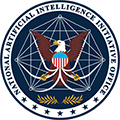
Artificial intelligence (AI) has the potential to impact the federal government in various ways. Here are some key areas where AI can have an influence.
Data Analysis and Decision-Making: AI can assist in processing and analyzing vast amounts of data, helping government agencies make more informed decisions. It can identify patterns, detect anomalies, and generate insights that aid policy and legislation formulation, resource allocation, and risk assessments.
Automation and Efficiency: AI technologies, such as robotic process automation (RPA) and intelligent chatbots, can automate repetitive tasks, streamline administrative processes, and enhance operational efficiency within government departments. This allows human employees to focus on more complex and value-added activities.
Enhanced Citizen Services: AI-powered chatbots and virtual assistants can improve citizen services by providing accurate and timely information, answering queries, and guiding users through government processes. Natural language processing capabilities enable these systems to effectively understand and respond to citizen requests.
Public Safety and Security: AI can bolster national security efforts by analyzing large volumes of data from diverse sources, such as surveillance cameras, social media, and sensor networks, to detect potential threats and identify patterns indicative of criminal or terrorist activities. It can also help in cybersecurity by identifying and mitigating emerging threats. This would be incredibly useful in Congressional Committee activities.
Predictive Analytics and Forecasting: By leveraging AI algorithms, governments can make better predictions and forecasts for economic trends, climate change impacts, public health outcomes, and disaster response. This enables proactive planning and policy development to address future challenges effectively.
Fraud Detection and Prevention: AI can detect fraudulent activities across government programs and systems. Machine learning algorithms can analyze data patterns to identify anomalies, flag suspicious transactions, and minimize financial losses.
Regulatory Compliance: AI can assist government agencies in monitoring and enforcing regulatory compliance in healthcare, finance, and environmental protection areas. By automating compliance checks, AI systems can identify violations, assess risks, and facilitate proactive enforcement actions.
Ethical Considerations and Governance: Adopting AI within the federal government requires careful attention to ethical considerations. Governments must establish governance frameworks to ensure responsible and transparent use of AI, addressing issues such as privacy, bias, accountability, and algorithmic transparency.
It is worth noting that the impact of AI on the federal government will depend on various factors, including the level of adoption, the quality of data, the availability of skilled personnel, and public policy considerations. Close collaboration between policymakers, technologists, and experts in AI ethics will be essential to maximize the benefits while minimizing potential risks.